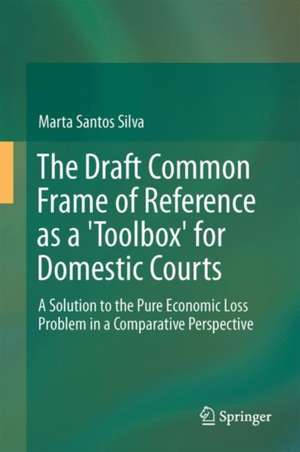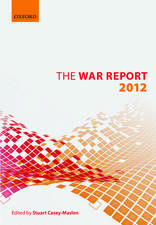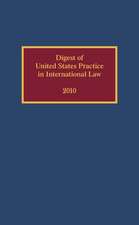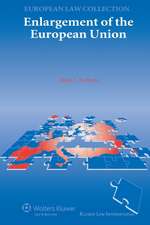The Draft Common Frame of Reference as a "Toolbox" for Domestic Courts: A Solution to the Pure Economic Loss Problem from a Comparative Perspective
Autor Marta Santos Silvaen Limba Engleză Hardback – 13 iul 2017
| Toate formatele și edițiile | Preț | Express |
|---|---|---|
| Paperback (1) | 641.03 lei 6-8 săpt. | |
| Springer International Publishing – aug 2018 | 641.03 lei 6-8 săpt. | |
| Hardback (1) | 896.70 lei 6-8 săpt. | |
| Springer International Publishing – 13 iul 2017 | 896.70 lei 6-8 săpt. |
Preț: 896.70 lei
Preț vechi: 1093.53 lei
-18% Nou
Puncte Express: 1345
Preț estimativ în valută:
171.59€ • 179.60$ • 142.81£
171.59€ • 179.60$ • 142.81£
Carte tipărită la comandă
Livrare economică 31 martie-14 aprilie
Preluare comenzi: 021 569.72.76
Specificații
ISBN-13: 9783319529226
ISBN-10: 3319529226
Pagini: 306
Ilustrații: XXXI, 275 p.
Dimensiuni: 155 x 235 mm
Greutate: 0.61 kg
Ediția:1st ed. 2017
Editura: Springer International Publishing
Colecția Springer
Locul publicării:Cham, Switzerland
ISBN-10: 3319529226
Pagini: 306
Ilustrații: XXXI, 275 p.
Dimensiuni: 155 x 235 mm
Greutate: 0.61 kg
Ediția:1st ed. 2017
Editura: Springer International Publishing
Colecția Springer
Locul publicării:Cham, Switzerland
Cuprins
Part I - The Portuguese Civil Code Through the Prism of the Draft Common Frame of Reference (DCFR): Portuguese Codified Law and its Broad-minded Attitude Towards Comparative Law and Jurisprudence from a Historical Perspective.- Judges as Key Players in the Development of European Private Law.- A Role for the DCFR in Domestic Adjudication.- Part II - A Plea for the Informal Acceptance of the Concept of “Legally Relevant Damage” as a Way to Break the Stalemate Created by the Category “Pure Economic Losses”: General Remarks on the Non-contractual Liability Regime Arising out of Damage Caused to Another in the Portuguese Civil Code.- Drawbacks of Unlawfulness and Compensation of Pure Economic Loss.- General Remarks on the Non-contractual Liability Regime Arising out of Damage Caused to Another in the Draft Common Frame of Reference (PEL. Liab. Dam.).- Reception of the DCFR’s Concept of “Legally Relevant Damage” and its Potential for the Protection of Pure Economic Interests.- Part III - Critical Remarks: Cutting the Gordian Knot with the DCFR: The Deadlock of Pure Economic Loss and the Quest for a Solution.- Could Portuguese Courts Use the DCFR over National Sources of Law?.- Should the Portuguese Courts Use the DCFR Concept of “Legally Relevant Damage”?.
Textul de pe ultima copertă
This book investigates whether national courts could and should import innovative solutions from abroad in the adjudication of complex legal disputes. Special attention is paid to the concept of “legally relevant damage” and its importance in overcoming the deadlock created by the category of “pure economic loss” in the Portuguese and German tort law systems. These systems are essentially based on the concept of unlawfulness (“Rechtswidrigkeit”), which limits the compensation for pure economic loss to where a protective rule is infringed. These losses have nevertheless been compensated for through the extensive interpretation of rules and the appeal to near-contractual devices, which has been detrimental to legal certainty, the equality before the law, and subjects’ freedom of action. This book explains why courts can and should take a proactive role and apply DCFR-based solutions in order to compensate for every loss that is worthy of legal protection.
Caracteristici
Presents an unbiased description of the evolution of the DCFR Defends the harmonisation of European Private Law using techniques already available in the legal system Includes a thorough description of the evolution of Portuguese codification and of the Portuguese tort law system Presents a detailed comparison of the Portuguese and German tort law systems Compares the requirements of liability, particularly unlawfulness and the concept of legally relevant damage Seeks to apply the DCFR concept to the development of the Portuguese tort law system Puts forward a structured proposal to remedy the standstill created by the pure economic loss approach in Portugal Includes supplementary material: sn.pub/extras











